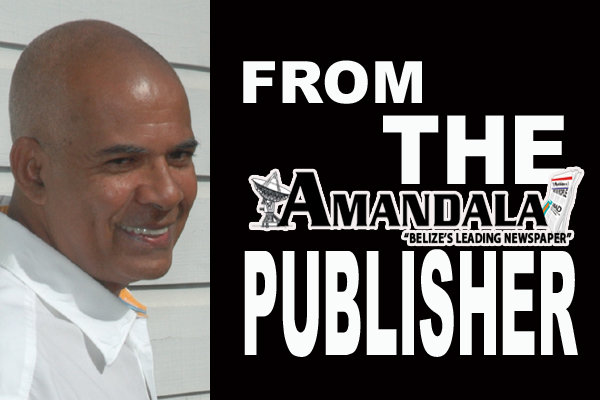There were important differences between the United Democratic Party (UDP) and the National Independence Party (NIP), which the UDP absorbed at its founding in September of 1973. Perhaps the most important difference was, the UDP immediately declared that it would de-emphasize the Guatemalan claim to Belize, which had been the focus during the Goldson era of NIP propaganda attacks against the ruling People’s United Party (PUP), and announced that the UDP would concentrate on the economic development of Belize.
The UDP quickly became more wealthy and more successful than the NIP had ever been, winning six seats in the October 1974 general election and coming within seventeen (17) votes of winning three more seats and throwing the House of Representatives into a 9-9 deadlock. (The NIP had never won more than two seats in a general election.)
By the time the UDP won a landslide Belize City Council victory in December of 1977, there was euphoria within its ranks, which, of course, included all of the former NIP supporters. The next general election was scheduled for 1979. The issue of the Guatemalan claim was forgotten: all the UDP supporters were seeing was the fact that they would now finally defeat the dreaded PUP.
The UDP, which, to repeat, includes the former NIP, have now won four different general elections in this country – 1984, 1993, 2008, and 2012. The Guatemalan claim to Belize, however, remains unhappily with us, and I has become perhaps more troubling on a daily basis than ever before. Whereas in the old days what we Belizeans worried about was a military invasion from the Guatemalans, today Guatemalans legally constitute a much larger percentage of our population than ever before, while Guatemalan fishermen, hunters, farmers, xateros, loggers, and gold panners are involved in aggressive, documented, and sometimes violent incursions into Belize each and every day.
As an older Belizean, I find the flavor of the 13 points of agreement signed on December 17 in Placencia by the Foreign Ministers of Belize and Guatemala, and witnessed by the President of Guatemala and the Prime Minister of Belize, to be quite reminiscent of Bethuel Webster’s Seventeen Proposals of 1968. While the 2014 points of agreement appear relatively innocuous, apart from the completely undesirable “seasonal workers” clause, they are a move in the direction of more intimate cooperation with neighbors who insist that they own half of our land and sea.
When we were children in the late 1950s and Ydigoras Fuentes, then Guatemalan President, was kicking up dust and frightening us with his threats, there was obviously an ethnic aspect to the Guatemalan claim. Belize was majority black at the time, while our perception of Guatemalans was that they were all “Spanish.” Guatemala appeared monolithic to us.
This was not the case.
In this part of the world, it is almost impossible to get away from ethnicity. Consider the Cuban Revolution of 1959. Half the Cuban population are now known to be black. But, almost all the Cubans who fled to Florida from the Fidel Castro regime were white. There are a few progressive intellectuals who have described Fidel as the “blackest man in the Caribbean.” In other words, the Cuban Revolution may be viewed as having benefited the black Cubans at the island’s socio-economic base.
You can jump as high or as low as you wish, but you cannot get away from the fact that Guatemala is actually a white supremacist reality. The Indigenous people of Guatemala have experienced socio-economic oppression for centuries, and those historic injustices suffered by Indigenous Guatemalans contributed to the 1960-1996 civil war in which 200,000 of them were slaughtered by Guatemala’s business and military elite.
With Belize having become majority Mestizo over the last three plus decades, the Guatemalan claim to Belize may now be more imperialist and ideological than it is ethnic. During the time of Mr. Price, Belize was a country where the government openly tried to protect the poor from the rich. Mr. Price called it his “mixed economy.” The PUP changed drastically during the Musa/Fonseca years of so-called “growth economics,” when Belize’s government philosophy became neoliberal, which is to say, free up and finance the rich and hope they help the poor. The Dean Barrow governments have financed highly publicized pro-poor programs, but when push comes to shove, this UDP government goes along with the big money.
There is a group of powerful nations in this region who have dubbed themselves “Friends of Belize.” They include the United States, Great Britain, Canada, Mexico, and so on. These “Friends of Belize” are neoliberal systems, which means that they are really “Friends of Guatemala,” which is probably the most extremely neoliberal system in Central America.
Belize’s leaders have to be very careful with any initiative involving Guatemala. This is a nation with a history of injustice with respect to its Indigenous masses. Belize is no longer majority black, but we may now be considered majority black/cum/Maya. The Guatemalan oligarchy needs to change its attitude towards Indigenous people. If you look closely, there are elements in Belize which do not have a real problem with such an attitude as exists in Guatemala. These elements always emphasize “economic development.” This sounds good, but where do we fit in?
Power to the people. This is the real deal – then, now, and forever.


